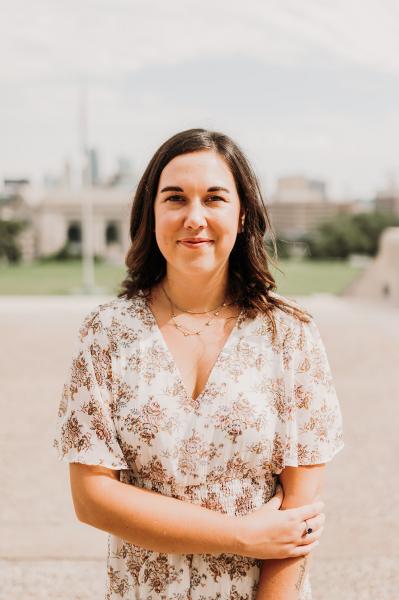American Psychological Association Division 50

Where do you work and in what capacity?
I am a clinical psychologist and researcher. Currently, I am a first-year post-doctoral research fellow at the Center for Alcohol and Substance Use Studies in the Graduate School of Applied and Professional Psychology (GSAPP) at Rutgers University funded by an endowed fellowship. I also provide clinical services to college student athletes with substance use-related concerns through GSAPP.
Where did you do your training?
I received my M.A. and Ph.D. in Clinical Psychology from Texas Tech University under the mentorship of Andrew Littlefield. While at Texas Tech, I also completed a graduate certificate in psychological methods and analysis. I completed my clinical internship at the University of Mississippi Medical Center under the mentorship of Julie Schumacher in July 2022. During my graduate training, I was able to take part in a wide breadth of research and clinical experiences related to substance use that have shaped my current research interests and future career goals.
What are you research interests?
Broadly, I am interested in risk and protective factors related to cannabis use and improving measurement of cannabis use. My current research is concentrated on improving assessment of self-reported cannabis use quantity and its relations to outcomes. Mechanistically, my work focuses on risk factors such as motives, expectancies, impulsivity, and adverse experiences as they relate to cannabis use and other substance use behaviors. I am also interested in correlations of substance use and comorbid psychopathology, particularly PTSD. Additionally, I have a strong interest in methodology, particularly structural equation modeling with growing interest in intensive longitudinal and mixed methods designs.
What are you clinical interests?
Clinically, I am interested in substance use disorder (SUD) treatment across the level-of-care continuum including primary care, outpatient therapy, residential centers, and inpatient care. In addition to substance use treatment, I am interested in treatment for trauma disorders and co-occurring PTSD-SUDs. Combining my research and clinical interest, my work has focused on understanding the utility of brief interventions for cannabis use as well as mechanisms underlying PTSD-SUD such as impulsivity, distress tolerance, anxiety sensitivity, and substance use motives. Though I am predominately interested in research, I value clinical experiences as a bridge connecting research to practice and hope to apply my research to the implementation and dissemination of evidenced-based clinical practices.
What are your policy/advocacy interests?
Much of my recent work has emphasized improving care for historically underrepresented groups including underrepresented racial identities and sexual orientations, low-income communities, and groups with stigmatized health conditions. I have a growing interest in researching ways to improve substance use treatment and understanding how substance use is implicated in larger systems of care and health decision making. To that end, I am presently working on studies aimed at understanding how substance use during pregnancy relates to child protective services involvement and infant placement decisions following birth. Importantly, my colleagues and I aim to understand how these decisions are impacted by racial identity and/or socioeconomic disadvantage. Further, I am involved in ongoing research aiming to improve substance use interventions for individuals with HIV/AIDS in an economically disadvantaged region of the United States. Over the course of my training and career, I hope to develop tools related to community-based care and use research to inform practice for historically marginalized groups.
How did you become interested in addictive behaviors?
My interest in addictive behaviors began early in my undergraduate career. I found that substance use perpetuates a wide range of mental, physical, social, and political domains and I was continuously drawn to research aimed at understanding risk and protective factors related to substance use. My interest in cannabis in particular grew in response to the rapidly shifting landscape around cannabis including shifts in legality and attitudes as well as increases in prevalence of use. Clinically, in my work with criminal justice settings, medical settings, PTSD clinics, and general outpatient clinics, I noticed an increase in the use of cannabis to manage both physical and mental health concerns. This sparked an interest in better understanding populations that may be at-risk for adverse outcomes of use. Further, the social inequities associated with cannabis (e.g., racial disparities in incarceration) underscored the importance of conducting research to inform policy from a socially just framework.
What motivated you to join the Society on Addiction Psychology (Division 50)?
I joined Division 50 as a way to connect with researchers interested in substance focused work across disciplines and populations. I appreciate Division 50’s commitment to building collaborative research and practice networks and to being at the forefront of innovations in addictive behaviors.
Any other information that you would like to share about yourself with other SoAP members?
Outside of work, I spend my time going to as many concerts and sporting events as possible. I am an avid Kansas City Chiefs fan but love going to any professional sporting events. Most recently, I am trying to pick up tennis as a hobby and am enjoying exploring the east coast. To relax, I spend time with my dogs, Tater Tot and Alfred, and read novels.

Resources are available for those struggling with addiction and numerous effective treatments exist. Whether you are looking for help for yourself or a loved one, we encourage you to seek out help.